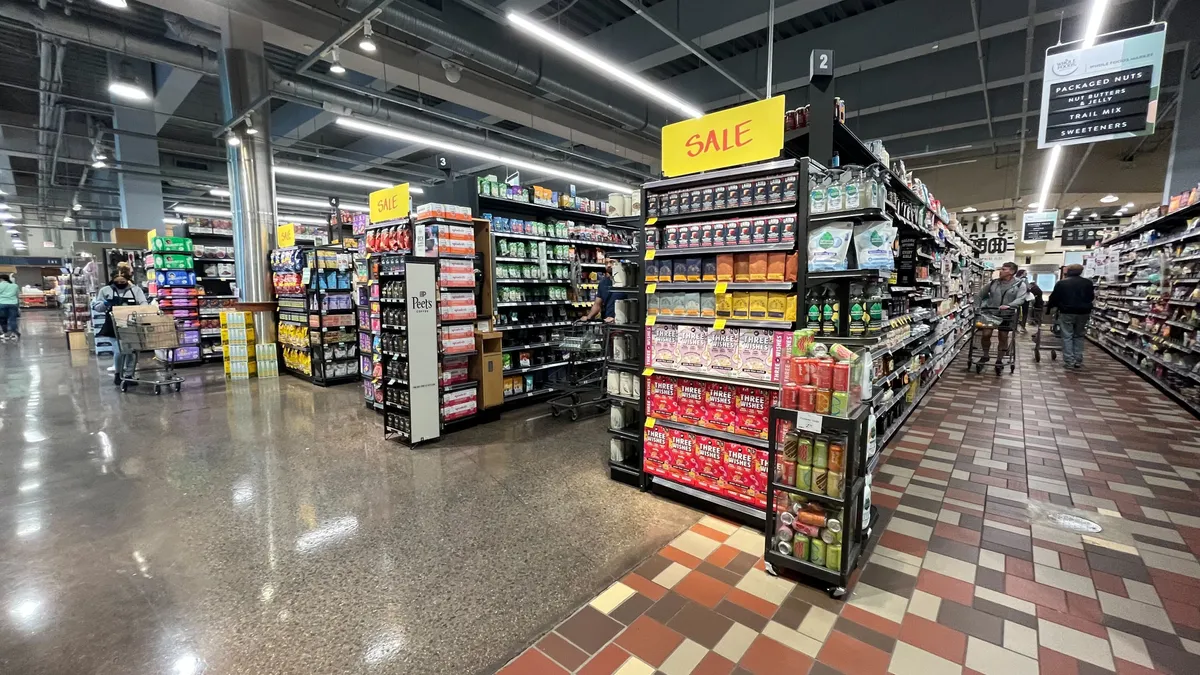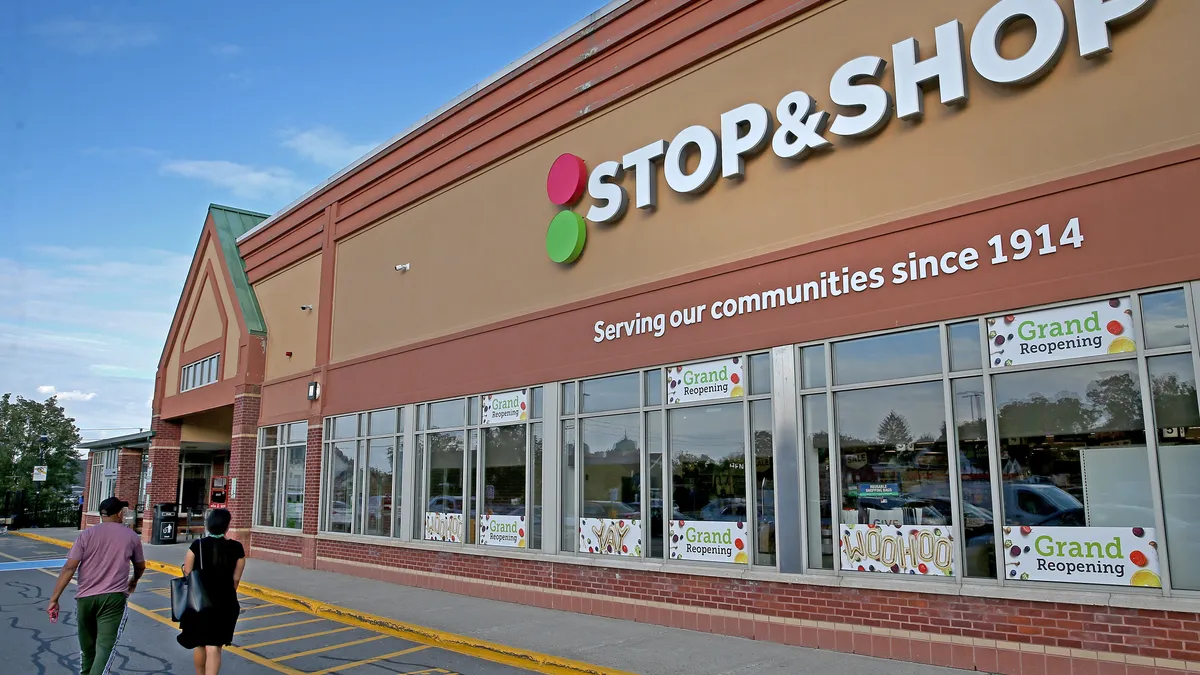Dive Brief:
- A recent survey by Jefferies and Bare International found that eight out of 12 grocers surveyed in the Atlanta, Chicago and Dallas markets say their everyday prices have increased, indicating they’re passing along input costs to shoppers as deflation eases, reports Supermarket News.
- The survey also found that nine out of the 12 grocers polled reported increases to their best-priced basket prices, which indicates retailers are pulling back on their promotions.
- The survey found that Walmart has invested in price discounts in the Dallas and Chicago markets, while prices in Atlanta are flat. Target, meanwhile, showed lower-than-average increases as well as declining prices, reflecting its recent turn to an everyday low price format.
Dive Insight:
The price deflation that has impacted retailers for nearly two years now appears to be easing. In recent earnings reports, executives have noted that rising prices on items like eggs, meat and milk has boosted sales and allowed companies to pass along increasing input costs to their shoppers.
Much of this deflation was connected to the strength of the U.S. dollar, which has slowed exports and boosted imports. California's drought, bird flu outbreaks and smaller-than-expected cattle herds also spurred price escalations, worsened the problem. However, beginning around springtime, categories became inflationary again. From April to May, for instance, milk prices went from a 0.2% decline to a gain of 0.4%.
Although retailers have welcomed commodity price relief, they know hard times lie ahead. Large chains like Kroger, Walmart and Aldi are slashing prices, causing other grocers to do the same in order to retain customers. Price reductions will only increase as competition grows in key markets across the country. Some believe a price war is at hand, and that regular promotions and thinning margins will be the new reality for supermarkets going forward.
Amazon’s plan to drop prices at Whole Foods stores will likely escalate the price battle. The reductions, which Amazon is applying to costly items like organic salmon and almond butter that appeal to core customers, follow the e-tailer’s strategy in other retail segments. With its vast resources and its willingness to experiment and absorb losses, Amazon will take a significant profit hit in order to drive customer traffic. Other retailers operating with significantly less spending capital, meanwhile, will scramble to keep up.










